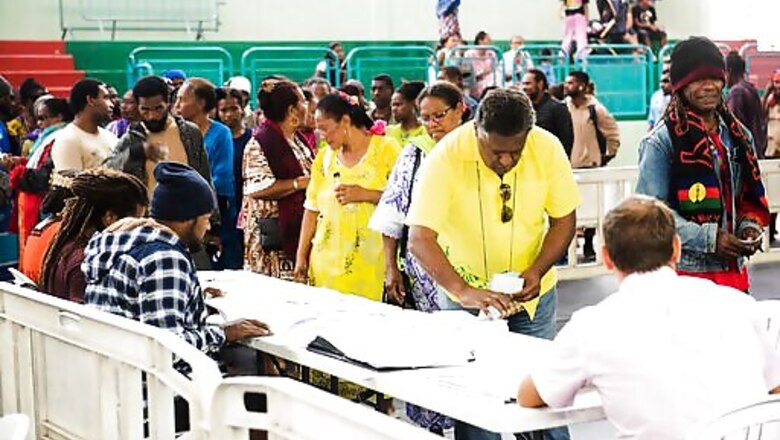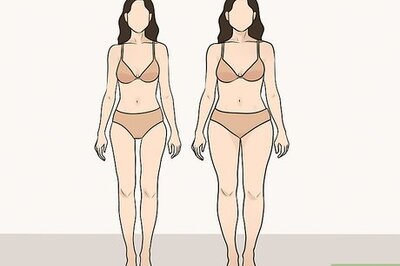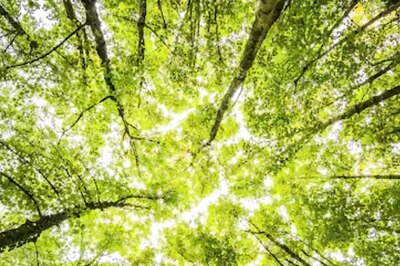
views
NOUMEA, New Caledonia: A majority of voters in New Caledonia, an archipelago in in the South Pacific, chose to remain part of France instead of backing independence Sunday, in a referendum that marked a milestone moment in a three-decade long decolonization effort.
In a televised address from Paris, French President Emmanuel Macron welcomed an expression of confidence in the Republic with a deep feeling of gratitude … and modesty.
Macron promised pro-independence supporters this is with you, all together, that we will build New Caledonia tomorrow.
He praised the success of the vote and called on New Caledonia residents to look to the future.
The overseas ministry said results show 53.3% of the voters who participated in the referendum on Sunday have chosen to maintain ties with France, while 46.7% supported independence.
The vote has been marked by a very high turnout. More than 85% of voters had cast their ballots one hour before poll stations closed, according to the overseas ministry.
Some polling stations in Noumea, the capital, closed an hour late because people were still waiting in long lines to vote at the planned closing time.
Sunday’s independence referendum was among the final steps of plans initiated in 1988 to settle tensions on the archipelago between native Kanaks seeking independence and residents willing to remain in France. The South Pacific archipelago has been part of France since 1853.
Two years ago, 56.4% of voters who participated in a similar referendum chose to keep the archipelago’s ties with Paris.
Today is not a day like any other. Everyone woke up with the will to express oneself (through the vote). This is a historic day, Robert Wayaridri, 60, told The Associated Press.
Corine Florentin, who was born in Noumea 52 years ago, said she voted against independence because she wants to remain French.
“We can live together, all races together, and design our common future, she said.
Guillaume Paul, an 18-year-old student at the University of New Caledonia, also voted no because he wants the archipelago to keep its ties with France.
“What would the country become if it was independent? There is a real danger that without the financing brought by France, the university would disappear,” he said.
But Joachim Neimbo, 22, was in favor of independence.
We want the recognition of our identity, our culture. I think we are able to manage ourselves, he said.
Taguy Wayenece, 25, also voted yes to independence.
We need to return to tradition, to working in the fields, to stay with the tribe. Modern life is too complicated for us,” he said.
The archipelago now counts 270,000 inhabitants, including both native Kanaks, who once suffered from strict segregation policies and widespread discrimination, and descendants of European colonizers.
New Caledonia became French in 1853 under Emperor Napoleon III Napoleons nephew and heir and was used for decades as a prison colony. It became an overseas territory after World War II, with French citizenship granted to all Kanaks in 1957.
Disclaimer: This post has been auto-published from an agency feed without any modifications to the text and has not been reviewed by an editor




















Comments
0 comment